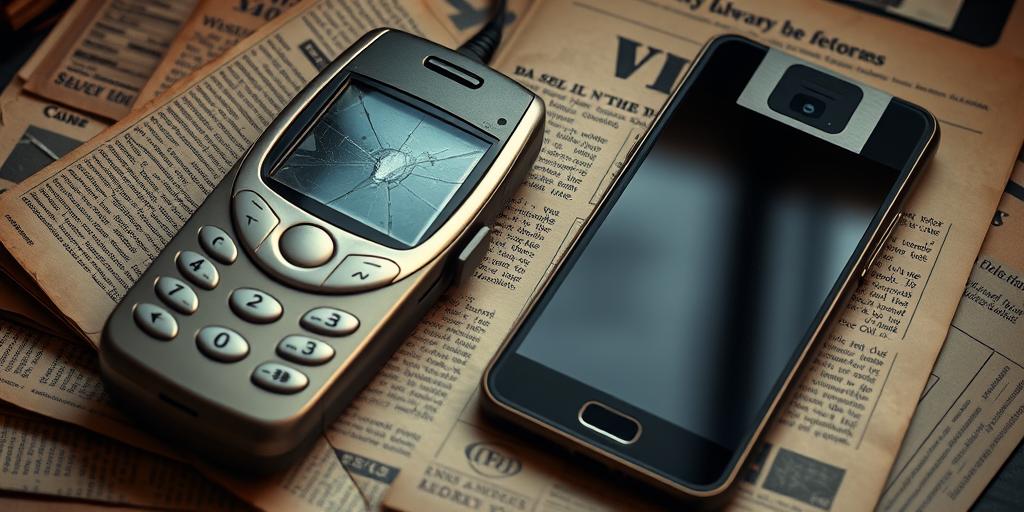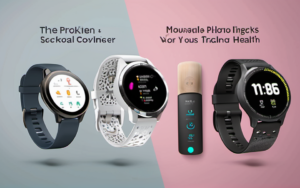It’s hard to imagine a world without smartphones. They’ve become an indispensable part of our lives, connecting us to information, entertainment, and each other in ways that were unimaginable just a few decades ago. But the journey of the smartphone is a fascinating one, marked by innovation, evolution, and a profound impact on society. Let’s take a trip down memory lane and explore the origins of these ubiquitous devices and how they’ve transformed our world.
The Dawn of the Smartphone Era
The concept of a phone that could do more than just make calls was a dream for many, and it was finally realized in 1994 with the release of the IBM Simon Personal Communicator. This groundbreaking device, often considered the first true smartphone, combined a mobile phone with a touchscreen, email capabilities, a calendar, a notepad, and even a basic game. Though bulky by today’s standards, the Simon Personal Communicator paved the way for a new era of mobile technology.
The First Pioneers: Introducing the IBM Simon Personal Communicator
The IBM Simon Personal Communicator was a technological marvel for its time. Its 4-inch touchscreen allowed users to navigate menus and interact with applications, making it a precursor to modern smartphones. However, its hefty price tag and limited functionality hampered its widespread adoption.
Early Models: Nokia Communicator 9000 and the BlackBerry 850
The late 1990s saw the emergence of more advanced mobile devices like the Nokia Communicator 9000 and the BlackBerry 850. The Nokia Communicator 9000, with its clamshell design and integrated keyboard, was a popular choice for business professionals. The BlackBerry 850, on the other hand, focused on email communication and gained traction among professionals who needed to stay connected on the go.
The Rise of the Touchscreen: The Apple iPhone and the Google Android
The early 2000s witnessed the rise of touchscreen technology, which revolutionized the smartphone experience. The introduction of the Apple iPhone in 2007 marked a turning point in the industry, introducing a sleek design, intuitive user interface, and a robust app store. Google’s Android operating system, released in 2008, provided an open-source alternative, fueling the development of a diverse range of Android smartphones. These advancements ushered in a new era of innovation and competition in the smartphone market.
The Impact of Smartphones on Our Lives
The advent of the smartphone has had a profound impact on our lives, changing the way we communicate, access information, and engage with the world around us.
Communication Revolution: Instant Messaging, Social Media, and Video Calls
Smartphones have revolutionized communication, enabling instant messaging, social media interactions, and video calls. Apps like WhatsApp, Facebook Messenger, and Instagram allow us to stay connected with friends and family across the globe, fostering a sense of global community. Video calling apps like Zoom, Skype, and Google Meet have become essential tools for remote work, education, and social gatherings.
Information at Our Fingertips: Search Engines, News, and Online Resources
Smartphones have made information readily accessible, providing us with a vast library of knowledge at our fingertips. Search engines like Google and Bing allow us to find answers to any question, while news apps keep us updated on current events. Online resources, such as Wikipedia, educational platforms, and online libraries, provide a wealth of information on various subjects.
Mobile Entertainment: Gaming, Streaming, and Music
Smartphones have transformed the entertainment landscape, offering a wide range of mobile games, streaming services, and music platforms. Mobile games have become increasingly sophisticated, with popular titles like Fortnite, PUBG Mobile, and Candy Crush Saga captivating millions of players. Streaming services like Netflix, Hulu, and Disney+ allow us to enjoy movies, TV shows, and documentaries on the go. Music streaming platforms like Spotify, Apple Music, and YouTube Music provide access to a vast library of songs.
Productivity Tools: Email, Calendars, and Task Management
Smartphones have become essential productivity tools, enabling us to manage our schedules, emails, and tasks efficiently. Email apps like Gmail, Outlook, and Yahoo Mail allow us to stay connected with colleagues and clients, while calendar apps like Google Calendar, Apple Calendar, and Outlook Calendar help us organize our schedules and appointments. Task management apps like Todoist, Trello, and Asana provide tools for organizing projects and prioritizing tasks.
The Evolution of Smartphones: From Brick Phones to Pocket Supercomputers
The smartphone industry has witnessed a remarkable evolution, driven by advancements in hardware, software, and connectivity.
Hardware Advancements: Faster Processors, Larger Displays, and Improved Cameras
Smartphones have become increasingly powerful, with advancements in processor speeds, display sizes, and camera technology. The introduction of multi-core processors has significantly enhanced performance, while larger displays have improved user experience. Camera technology has also seen significant progress, with high-resolution sensors, advanced image processing, and features like optical zoom and night mode becoming increasingly common.
Software Innovations: App Stores, Operating System Updates, and Artificial Intelligence
Software innovation has been a key driver of smartphone evolution. The introduction of app stores like the Apple App Store and Google Play Store has created a thriving ecosystem of mobile applications, expanding the functionality of smartphones. Operating system updates have introduced new features, improved security, and enhanced user experience. Artificial intelligence (AI) is also playing an increasingly significant role in smartphones, powering features like voice assistants, smart photo editing, and personalized recommendations.
The Future of Smartphones: Foldable Screens, Augmented Reality, and 5G Connectivity
The future of smartphones is bright, with exciting advancements on the horizon. Foldable screens are becoming increasingly popular, offering a larger screen experience in a compact design. Augmented reality (AR) is poised to revolutionize mobile interactions, overlaying digital information onto the real world. 5G connectivity, with its lightning-fast speeds and low latency, will unlock new possibilities for mobile gaming, streaming, and AR applications.
The Legacy of the First Smartphones
The first smartphones, with their limited capabilities and bulky designs, may seem primitive compared to today’s sleek and powerful devices. However, they laid the foundation for a mobile revolution that has profoundly impacted our lives. Their legacy lives on in every smartphone we use today, reminding us of the incredible progress made in the field of mobile technology.
The Future of Mobile Technology
The evolution of smartphones is far from over. As technology continues to advance, we can expect to see even more innovative devices that push the boundaries of what’s possible. From foldable screens and augmented reality to 5G connectivity and beyond, the future of mobile technology promises to be exciting and transformative. The journey of the smartphone is a testament to human ingenuity and our relentless pursuit of innovation, shaping the way we live, work, and connect with the world around us.




